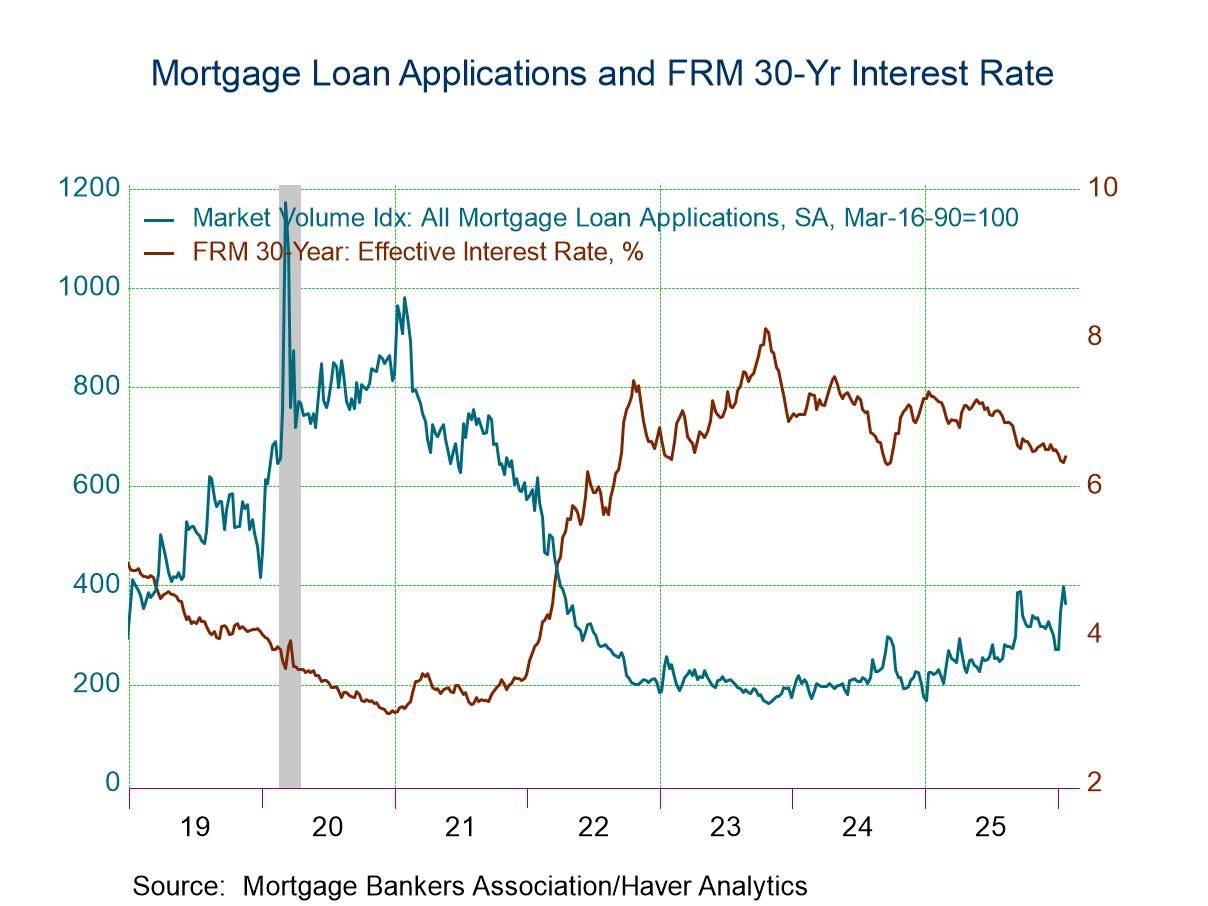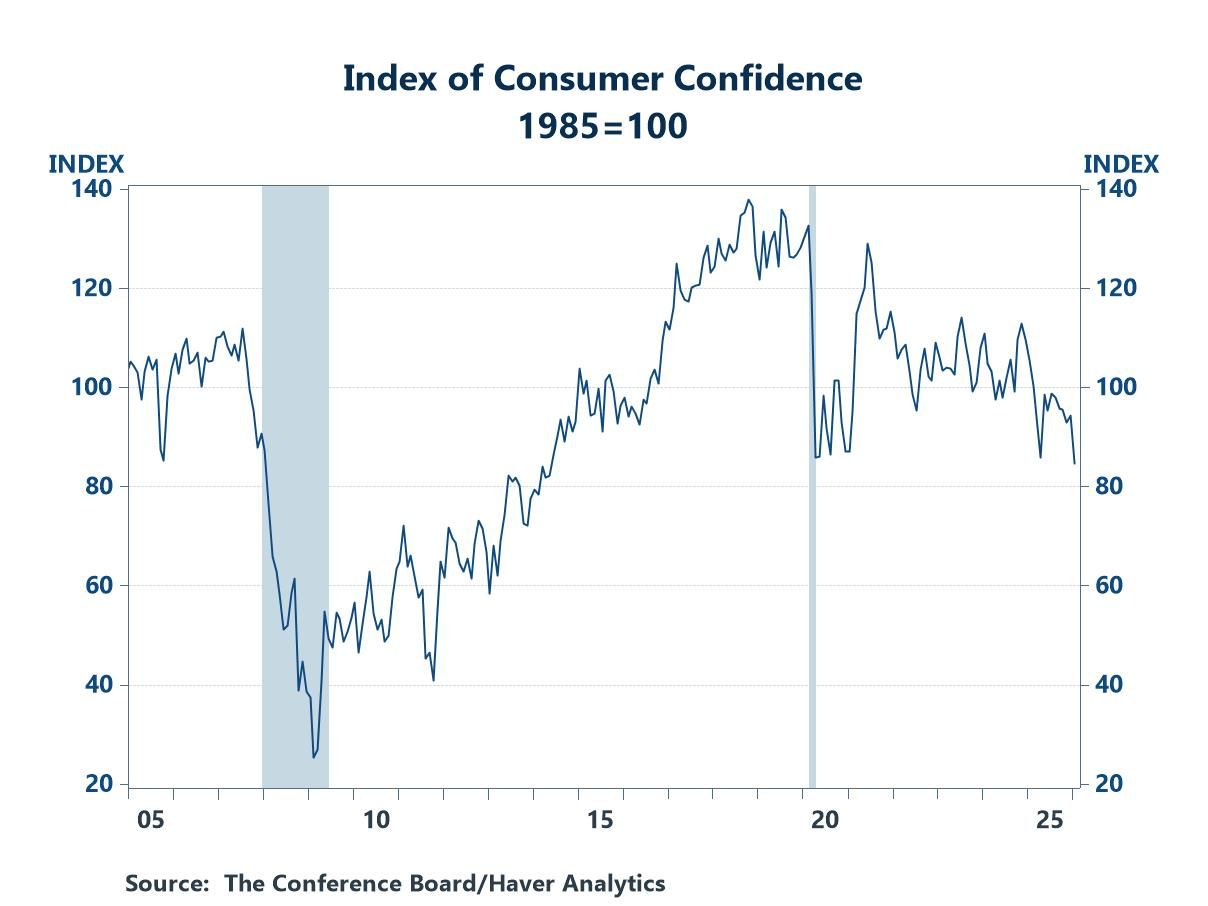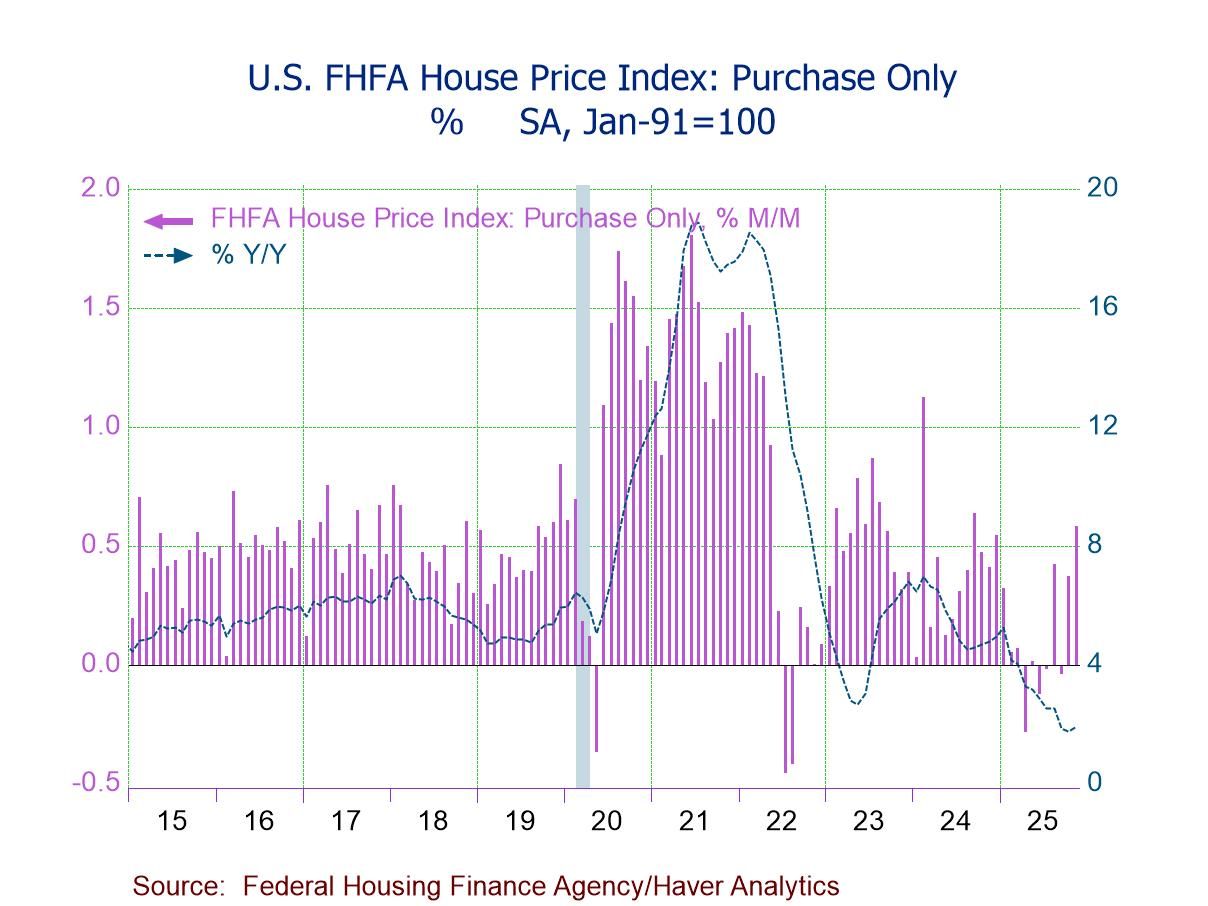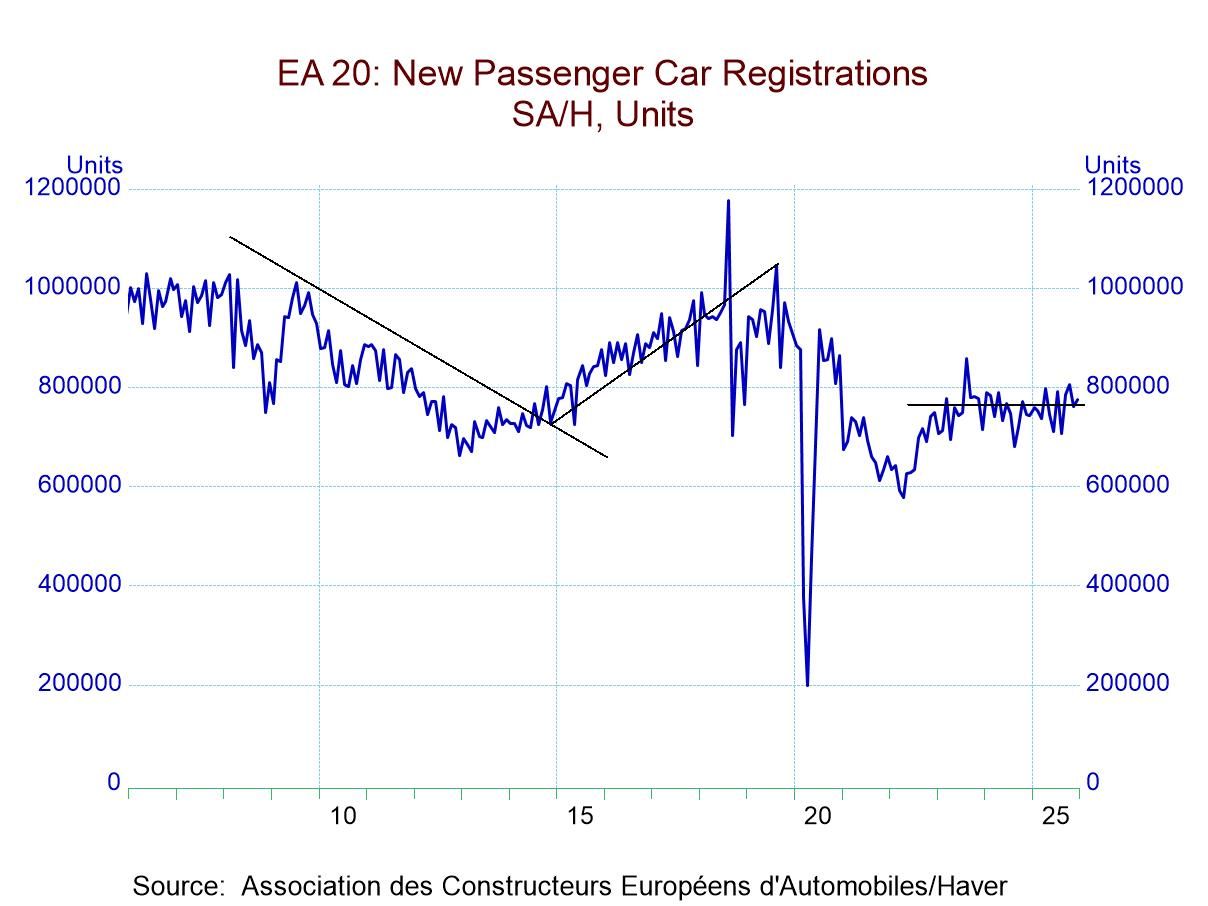 Global| Feb 18 2011
Global| Feb 18 2011UK Retail Sales Zoom Ahead As G-20 Ponders Policy
Summary
Retail sales really are strong - UK retail sales showed some power in January Sales spurted by 3% after dropping in December. UK inflation is running at about twice the BOE inflation ceiling, with such high inflation, nominal sales [...]
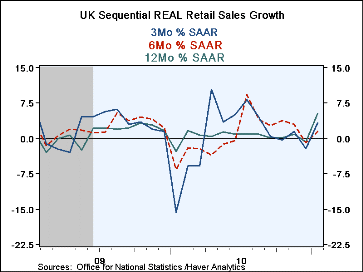 Retail sales really are strong - UK retail sales showed some power in January Sales spurted by 3% after dropping
in December. UK inflation is running at about twice the BOE inflation ceiling, with such high inflation, nominal sales are
bound to look stronger than in other places. Still, sales are up by a strong 8.2% Yr/Yr and at a 7.1% annual pace over six
months and are even stronger at a 10.6% annualized pace over three-months. Retail volume which is up by a strong 5.3% Yr/Yr
decelerated to a gain of only 1.5% over six months but has revived with growth at an annualized pace of 2.4% over the last
three months. Sales volumes are very strong in the UK along with inflation.
Retail sales really are strong - UK retail sales showed some power in January Sales spurted by 3% after dropping
in December. UK inflation is running at about twice the BOE inflation ceiling, with such high inflation, nominal sales are
bound to look stronger than in other places. Still, sales are up by a strong 8.2% Yr/Yr and at a 7.1% annual pace over six
months and are even stronger at a 10.6% annualized pace over three-months. Retail volume which is up by a strong 5.3% Yr/Yr
decelerated to a gain of only 1.5% over six months but has revived with growth at an annualized pace of 2.4% over the last
three months. Sales volumes are very strong in the UK along with inflation.
UK dilemma - The UK continues to have a policy dilemma with members of the monetary policy committee fixated on the prospect that growth might give-way in the face of austerity and others mesmerized by the continuing overshoot of inflation. They are like deer caught in the headlights unable to react.
Europe is in a tangle - Ahead of the G-20 meeting the UK economy is a mess. The EMU central bank is trying to decide if it’s time to fight inflation yet with Bini Smaghi making remarks to the extent that inflation may have reached a troublesome mark in the Zone.
Macroeconomic indicators? Fuggettabouddit...Still the Zone has not sorted out a rescue or backstop plan for its most troubled members. Against that background the G-20 is trying to adopt a series of indicators to trigger macroeconomic policy adjustment. So far there is no consensus as various members are opposed to the adoption of the metric that will find them out of balance and predispose them to make exactly the policy adjustment that have been fighting not to make. China for example is fighting the inclusion of exchange rate variables and variables on the quantity of reserves that a nation holds. China has said that it will not be bullied into making changes and will make changes when it sees fit. Now there is a cooperative tone. Sure glad China joined the G-20. I guess its really the G-1.what China says goes.
All for one and one for one! - As you might have figured out by now, these objections to various indicators are not theoretical objections but objections based upon political considerations about what policy is going to be.
A bent to stay that way - With such attitudes burning under the surface (and boiling over the top, in some cases) it is a good idea to keep expectations for this G-20 meeting to a minimum. One thing we can be sure of and that is that each and every G20 member wants adjustment; each member wants some other country to do it.
| UK Real and Nominal Retail Sales | ||||||||
|---|---|---|---|---|---|---|---|---|
| Nominal | Jan-11 | Dec-10 | Nov-10 | 3Mo | 6Mo | 12Mo | YrAgo | Q:2-D |
| Retail Total | 3.0% | -1.2% | 0.8% | 10.6% | 7.1% | 8.2% | 0.2% | 15.5% |
| Food Bev & Tobacco | 0.9% | -0.8% | 1.0% | 4.4% | 3.9% | 2.6% | 3.6% | 4.3% |
| Clothing footwear | 2.9% | -2.8% | 0.4% | 1.8% | 4.8% | 4.9% | 2.1% | 7.0% |
| Real | ||||||||
| Retial Volume:all | 2.0% | -1.4% | 0.3% | 3.4% | 1.5% | 5.3% | -2.7% | 6.9% |
Robert Brusca
AuthorMore in Author Profile »Robert A. Brusca is Chief Economist of Fact and Opinion Economics, a consulting firm he founded in Manhattan. He has been an economist on Wall Street for over 25 years. He has visited central banking and large institutional clients in over 30 countries in his career as an economist. Mr. Brusca was a Divisional Research Chief at the Federal Reserve Bank of NY (Chief of the International Financial markets Division), a Fed Watcher at Irving Trust and Chief Economist at Nikko Securities International. He is widely quoted and appears in various media. Mr. Brusca holds an MA and Ph.D. in economics from Michigan State University and a BA in Economics from the University of Michigan. His research pursues his strong interests in non aligned policy economics as well as international economics. FAO Economics’ research targets investors to assist them in making better investment decisions in stocks, bonds and in a variety of international assets. The company does not manage money and has no conflicts in giving economic advice.



